

Truly Grass-Fed
Since we shipped our first bottle of innovative whole food supplements to our first customer we have built every product around the power of real, clean, pure, farm-fresh ingredients.
That’s why when we talk about Garden of Life supplements, we start with basic ideas of FOOD SAFETY—the best, whole food organic ingredients; independent third-party certification; rigorous quality standards and testing; always improving, no compromises.
Garden of Life’s Food Safety Project is all about our holistic seed-to-supplement approach to ensuring the quality, safety and integrity of our products.
We are Creating a Board of Outside Expert Advisors
To ensure we’re always improving, we’ve engaged the following experts to advise us on our Food Safety Project:
Dr. Donald Zink, Ph.D. in Biochemistry and Biophysics
Dr. Zink is the President of the Division of Foods and Regulatory Compliance for IEH Laboratories and Consulting Group. He is the author of more than 35 peer-reviewed publications in the field of food safety. Over the last 13 years, he held various positions at the U.S. Food & Drug Administration in the area of food science. Dr. Zink spent 19 years in the food industry, directing food safety at food companies including Campbell Soup Company, Nestle® USA (including its Carnation Foods division) and Future Beef.
Dr. Steven Weisman, Ph.D. in Pharmacology
Dr. Weisman is the head of Clinical and Regulatory Support for Innovative Science Services (ISS). Prior to founding ISS, he ran the pharmaceutical and food practices at a major scientific consulting firm in Washington, D.C. Earlier, he served as Global Director of Medical and Clinical Affairs at Bayer, Director of Strategic Research at Sterling Winthrop, and he held similar positions at Hoffman-La Roche and Procter & Gamble. Dr. Weisman received his Ph.D. in Pharmacology from Cornell University Medical College and completed his postdoctoral training in Immunopharmacology at the Roche Institute of Molecular Biology.
Sandra Kepler, President, Non-GMO Global, Inc.
Sandra Kepler founded the Non-GMO Project in 2005, and after its creation, she founded FoodChain ID as the lead technical consultant and program administrator verifying products as non-GMO. Ms. Kepler’s FoodChain ID was part of the Global ID Group, where Ms. Kepler served in a variety of managerial and company-founding roles within Global ID’s constellation of non-GMO-related testing, certification and consulting companies over a period of 15 years. Ms. Kepler’s success in GMO risk management programs and in facilitating non-GMO market growth has contributed to her becoming one of the foremost globally recognized and sought-after experts in non-GMO food production, including crisis management, regulatory and non-GMO scheme compliance.
D. Jessica Shade, Ph.D. in Integrative Biology
Dr. Shade is the Director of Science Programs at The Organic Center, the leading non-profit supporting scientific research into organic food and farming. Dr. Shade holds her Ph.D. in Integrative Biology from the University of California, Berkeley.
Building Industry Leading Testing Standards
While all of our manufacturers are audited by the U.S. Food & Drug Administration and certified by independent third-party experts including NSF for internationally recognized current Good Manufacturing Practices (cGMPs), our experts found some opportunities for Garden of Life to set some new standards in the area of safety – enhanced procedures that go beyond today’s established standards at most food manufacturers.
We’ve immediately begun to implement their recommendations across our system. Some recent changes include:
- enhancements to our manufacturers’ sampling procedures to increase the overall number of samples, the size of each sample and the frequency of sampling for testing ingredients, blends and finished products.
- requiring our manufacturers to use new technologies, enabling them to handle and sample bulk materials under aseptic conditions.
- utilizing new test methods created to improve the reliability of tests performed on certain types of products, including powders. To learn more about our testing methods click here
Enhanced Testing at Our Suppliers
Who are Garden of Life suppliers?
What safety procedures have we put in place at our suppliers?
Starting with our unique whole food raw materials, ingredients are tested by appropriate methods to validate:
1. the identity of the ingredient. (Does the ingredient meet recognized standards for identification in order to meet label claims?)
2. the strength of ingredients, which is measured to ensure that the amount claimed on the label is verified.
3. the purity of ingredients, which is tested to ensure it is free from contaminants.
Our best-in-class North American manufacturers not only test our ingredients (upon arrival at their facilities), but also perform extensive testing on the formulas as they manufacture and before any products are shipped to stores. Our products are tested for all of the same properties as their ingredients: Identity, Strength and Purity.
What are appropriate test methods?
Testing methods evolve as technology improves. Our team of quality experts works closely with our manufacturers, third-party auditors and other industry experts to identify the best laboratories and most accurate test methods to use for each product.
Let’s Follow an Ingredient Through This System: ORGANIC PEA PROTEIN
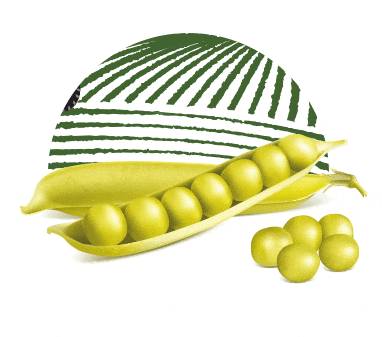

1. Organic Peas are grown in the USA
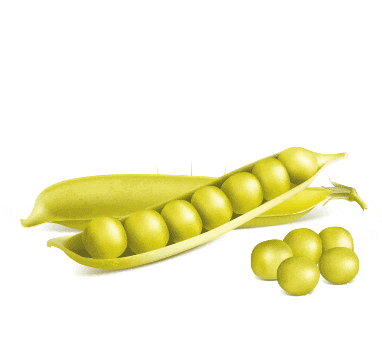

2. The peas are sun-dried and harvested
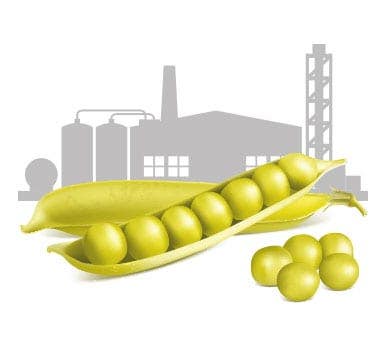

3. The dried organic peas are brought to Wisconsin
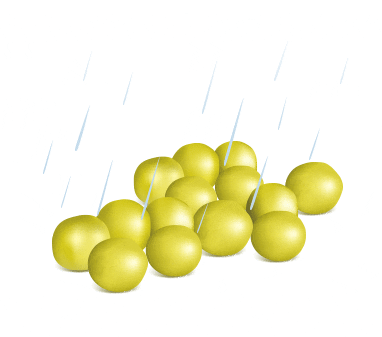

4. The peas are separated and washed
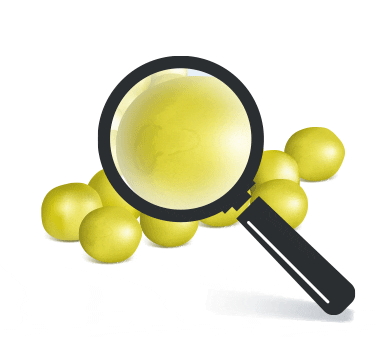

5. Thousands of peas from different parts of each harvest will be tested
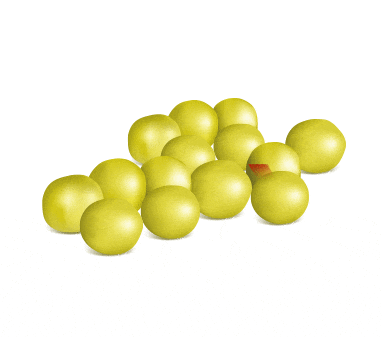

6. If one part of the harvest fails testing for any reason, the entire portion is discarded
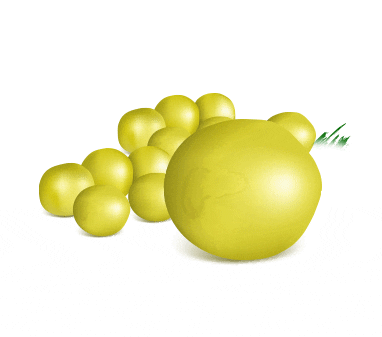

7. All of the passing peas are made into Organic Plant Protein
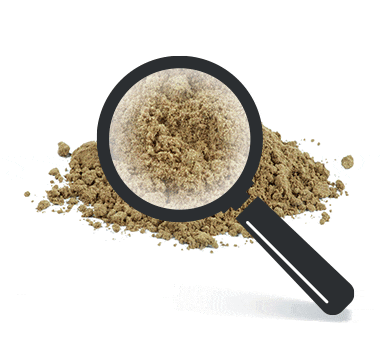

8. The Organic Pea Protein is tested for all points of interest (identity, strength, and Purity) and if there are any failures, the batch is rejected
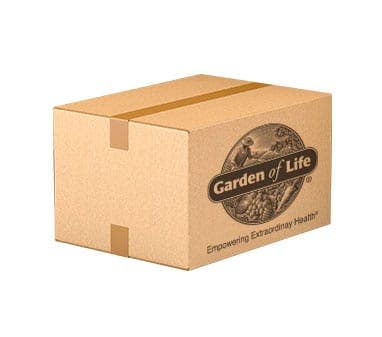

9. The Organic Pea Protein is shipped to our manufacturer
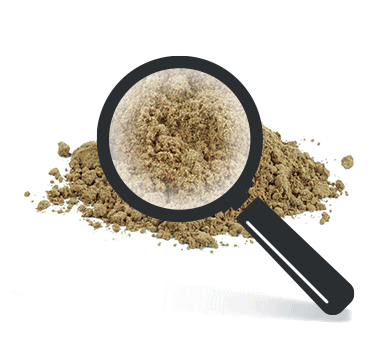

10. The Organic Pea Protein is tested again for all points of interest (identity, strength, and Purity) and if there are any failures, the batch is rejected
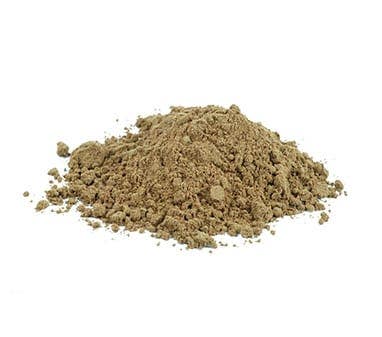

11. Our manufacturer blends the Organic Plant Protein into our formula


12. The blended formulas are tested prior to bottling for all points of interest (identity, strength, and Purity) and if there are any failures, the batch is rejected
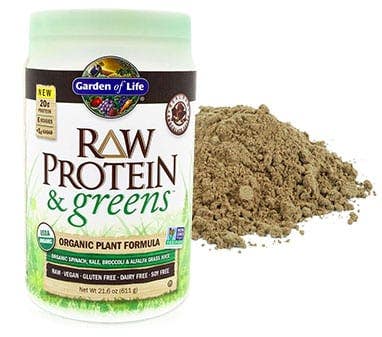

13. The manufacturer bottles the formula
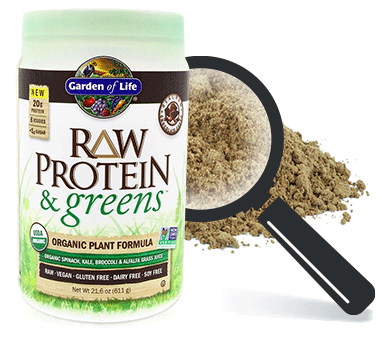

14. The final bottled products are tested prior to shipping to stores for all points of interest (identity, strength, and Purity) and if there are any failures, the entire lot of products are rejected
Beyond Transparency to Traceability
The foundation on which we build our supply chain is traceability. Our goal is to verify the history of all of our ingredients—where they are grown and who grows them. Learn more about our unique sourcing efforts, click here.
Always Focus on the Best Ingredients
WE START WITH THE SEEDS AND THE BEST, WHOLE FOOD INGREDIENTS…
It’s this simple: to produce a quality product, you have to start with quality ingredients. In your best recipes at home, you use fresh, ripe, just-harvested ingredients full of flavor. So do we.
Look at the labels on Garden of Life products, and you’ll see a difference. We use real food—not some genetically modified organism or chemical compound from a lab.
If you want organic food, you have to start with an organic farm where you plant organic seeds. Because we’re fanatical about the quality of our products, we proudly support organic family farmers.
Organic farming practices don’t allow for the use of toxic chemical pesticides, fungicides, fertilizers or genetically modified seeds. To learn more about what it takes for a farm to become organic, click here.
WE HAVE THE ASSURANCE OF INDEPENDENT, UNBIASED, THIRD-PARTY CERTIFICATION
For a product to carry the Certified USDA Organic and Non-GMO Project Verified seals, every ingredient in that product must be traced back to its origin. Third-party certification and verification takes the guesswork out of the buying equation. It provides an objective stamp for you to be assured that your foods are clean.
USDA Organic: No Seal = No Deal
There’s only one way to know if a product is truly organic: verification by an independent third party to meet the USDA’s rigorous requirements for organic. The USDA Organic seal confirms that all of the ingredients in the product come from organic farms from seeds that are not genetically modified.
Look for the certified USDA Organic seal on the package. No seal? Then it’s not USDA Organic. No matter what “they” say.

Non-GMO Project Verified
While organic farming ensures that the seeds used are not genetically modified, verification that a product is non-GMO by a world-class, independent third party such as the Non-GMO Project says something even more. It says that your entire formula, supply chain and manufacturing process was reviewed and verified non-GMO. To learn more about what it takes to become non-GMO verified, click here.
As the leading supplement brand in the Natural Products Industry, we have a full-time Quality Assurance and Control department dedicated to ensuring all appropriate quality practices are met or exceeded.
Our best-in-class quality systems require that our products are:

Safely manufactured by third-party audited and certified facilities that meet or exceed all U.S. Food and Drug Administration Current Good Manufacturing Practice regulations.
Tested to be safe in regulated third-party labs and by independent testing agencies such as ConsumerLabs.com.
Third-party certified by world-recognized bodies including:

